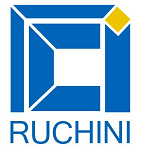Insurance Planning is necessary as insurance provides financial protection against a loss arising out of happening of an uncertain event. A person can avail this protection by paying premium to an insurance company. Why should I buy Insurance ? 1. Social Security Tool Insurance acts as an important tool providing a sense of security to the society on a whole. 2. Uncertainty The basic need of insurance arises as risks are uncertain and unpredictable in nature. 3. Economic Development The premium paid by people to the insurance companies is a part of their savings. These savings are ultimately used as investments fuelling economic growth. 1. Life Insurance Life insurance is nothing but the creation of capital funds on an installment basis. It has the below advantages: a) It buys time and money The money proffered by life insurance helps buy time to adjust to the change of circumstances. Insurance provides large amounts of cash that will keep the lifestyle for the survivors the way it was before the insured’s death. b) It offers peace of mind For the person who buys an insurance policy, it offers absolute and complete peace of mind. He or she knows that the decision made by him will provide sound benefits in the future, whether or not the individual may live to see it. c) Multiple Applications Life insurance policy owners can turn to the cash value of the policy in case of a financial emergency. They know that they can avail of loans based on their insurance policies. d) Regard for Family The purchase of life insurance clearly displays care and concern for the people the policy owner loves. How much Life Insurance do you need ? a) Income rule The most basic rule of thumb is provided by the income rule which holds that individual insurance cover should be at least around eight to ten times ones gross annual income. This rule suggests that an individual needs insurance equal to five times your gross annual income, plus the total of basic expenses like housing or car loans, personal debt, childs education, etc. b) Capital fund rule This rule suggests that if you need Rs 1 lakh p.a. for your family needs, and assuming you do not have any other income-generating assets, you may like to create a capital fund of Rs 12.5 lakh (Rs 1.25 million) which can yield Rs 1 lakh (Rs 100,000) annual income @ 8% p.a. You may therefore buy a life insurance policy of Rs 12.5 lakh. c) Family needs approach This rule holds that you purchase enough life insurance to enable your family to meet various expenses in the event of key earning persons death. Under the family needs approach, one has to divide his familys needs into two main categories: immediate needs at death (cash needs), and ongoing needs (net income needs) 2. Mediclaim Insurance There is a steep rise in the cost of medical services thereby making it difficult for people to afford medical treatment. Mediclaim is a complete health package that provides many medical benefits to people in order to ensure their well-being at any stage of life. Different insurance companies offer various mediclaim policies with varying premiums and benefits. 3. Disability Insurance Health insurance is not enough to circumvent the perils associated with permanent disability. Most of the Indian insurance policies have an in-built disability clause. Also, check out the definition of ‘disabled’ in the policy that the agent offers since you must be insured for your chosen occupation. Also, look for a policy that holds a guarantee and is non-cancellable. 4. Personal Accident Insurance Personal accident insurance supplements are a form of injury insurance that can be used with any licensed doctor, emergency room, clinic, or urgent care facility. 5. Travel Insurance Travel insurance is insurance that is intended to cover medical expenses, financial default of travel suppliers, and other losses incurred while traveling, either within ones own country, or internationally. 6. Motor Insurance Motor insurance is insurance purchased for cars, trucks, motorcycles, and other road vehicles. Its primary use is to provide financial protection against physical damage and/or bodily injury resulting from traffic collisions and against liability that could also arise therefrom. 7. Home Insurance It is an insurance policy that combines various personal insurance protections, which can include losses occurring to ones home, its contents, loss of its use (additional living expenses), or loss of other personal possessions of the homeowner. 8. Property Insurance Property insurance provides protection against most risks to property, such as fire, theft and some weather damage. 9. Marine Insurance Marine insurance covers the loss or damage of ships, cargo, terminals, and any transport or cargo by which property is transferred, acquired, or held between the points of origin and final destination.
Different kinds of Insurance
